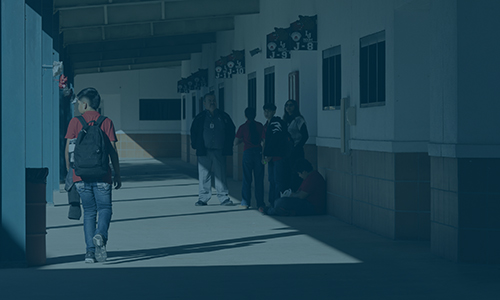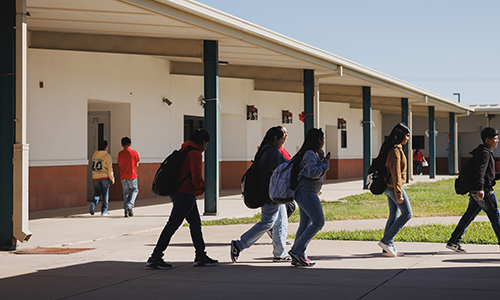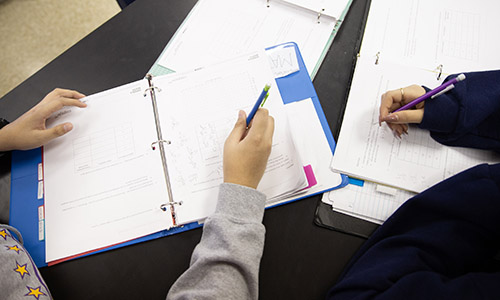Research brief
Education’s long COVID: 2022–23 achievement data reveal stalled progress toward pandemic recovery
July 2023
By: Karyn Lewis, Megan Kuhfeld

Description
This new research brief continues the ongoing research by NWEA examining the impact of the COVID-19 pandemic on student achievement and progress toward academic recovery.
Using data from 6.7 million U.S. public school students currently in grades 3 – 8, the study examined academic gains in the 2022-23 school year relative to pre-pandemic years. It also tracked the gap in achievement between the COVID year student group compared to their pre-pandemic peers.
Key findings show that while learning did continue, progress toward academic recovery stalled in the 2022-23 school year. Significant achievement gaps persist at the end of the 2022-23 school year, and the average student will need the equivalent of 4.1 additional months of schooling to catch up in reading and 4.5 months in math.
See MoreTopics: COVID-19 & schools, Equity
Associated Research
Related Topics


Post-Pandemic School Closure Trends: Schools Serving Black Students Disproportionately Closed
This NWEA white paper explores the impacts of permanent school closures on communities. Findings suggest that despite challenges facing districts and the increased rhetoric around closures, most districts have continued to keep schools open; however, when schools were permanently closed, all communities are not affected equally: high poverty and high percentage Black students are more likely to close.
By: Jazmin Isaacs, Megan Kuhfeld, Sofia Postell, Ayesha K. Hashim
Topics: COVID-19 & schools, Growth


School’s in for Summer: A Scalable and Effective Post-Pandemic Academic Intervention
New research report looks at the effects of post-pandemic summer school on student achievement and district recovery, how program design and implementation aligned with recommended best practices, and how the scale and impact of summer school compared to other interventions, like tutoring.
By: Emily Morton, Dan Goldhaber, Andrew McEachin, Thomas J. Kane
Topics: COVID-19 & schools, Growth, Seasonal learning patterns & summer loss


Unequal Access to 8th-Grade Algebra: How School Offerings and Placement Practices Limit Opportunity
This NWEA research brief examines how access to early Algebra – a key gateway to advanced high school math, STEM majors, and higher lifetime earnings – remains highly inequitable across the United States. Using NWEA data from 162,000 eighth-grade students across 22 states, the study looks at both whether schools offer Algebra by 8th grade and how students are placed when it is offered. The findings point to significant gaps tied to school poverty levels, geography, and race/ethnicity.
By: Daniel Long, Megan Kuhfeld, Scott J. Peters
Topics: College & career readiness, Equity, Math & STEM


This is the technical appendix to the “Unequal Access to 8th-Grade Algebra: How School Offerings and Placement Practices Limit Opportunity” research brief, which examines how access to early Algebra remains highly inequitable across the United States.
By: Daniel Long, Megan Kuhfeld, Scott J. Peters
Products: MAP Growth
Topics: College & career readiness, Equity, Math & STEM


NWEA’s MAP Growth National Dashboard provides timely trends and data on U.S. student academic achievement and growth for grades K-8. This free public tool supports district leaders, state and federal policymakers, and other education stakeholders in interpreting local data within a broader national and state context. It helps identify areas of strength, shine light on disparities, and ground policy conversations in evidence.
Products: MAP Growth
Topics: COVID-19 & schools, Equity, Growth


Specialty Schools National Dashboard
This interactive tool provides information about academic achievement and growth for several categories of US schools that used MAP Growth assessments. These groups included secular and religious private schools (including Roman Catholic, Jewish, Lutheran, Islamic, Seventh-Day Adventist, and other religiously affiliated institutions) as well as public charter schools. Use this dashboard to examine patterns of growth and achievement across seasons, academic subjects, school types, and student demographics.
Products: MAP Growth
Topics: COVID-19 & schools, Equity, Growth


Trend Snapshots: Math Recovery Continues, Reading Remains Stalled in Spring 2025
This short research brief highlights trends seen in the latest data released in the NWEA Map Growth National Dashboard. In this first edition of Trend Snapshots, key findings from Spring 2025 data highlight a modest, incremental recovery post COVID, but stalled progress in reading achievement.
By: Karyn Lewis, Megan Kuhfeld
Products: MAP Growth
Topics: COVID-19 & schools, Growth



